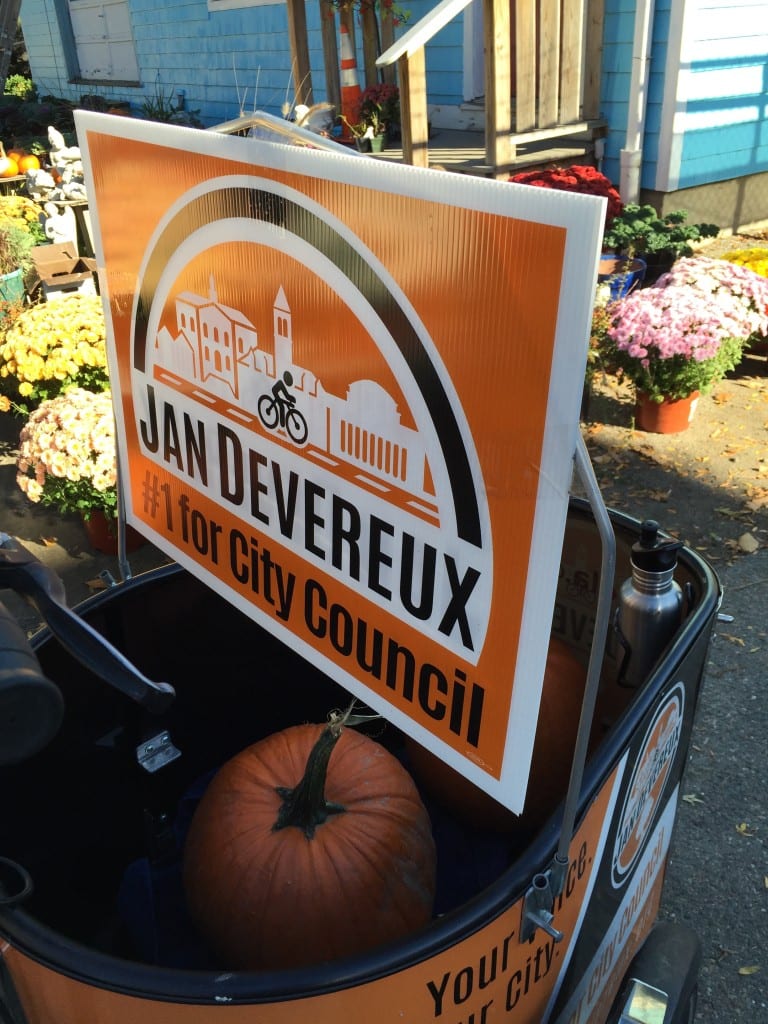 Cambridge has some of the best educated voters in the nation, but our Proportional Representation voting system would seem to require its own advanced degree to master. This year, 23 City Council candidates (including yours truly) are asking for your #1 vote on Tuesday, November 3rd. A small forest has been consumed printing the yard signs, flyers and postcards vying for the limited bandwidth of a small group of voters (less than a quarter of registered voters turned out for the 2013 municipal election).
Cambridge has some of the best educated voters in the nation, but our Proportional Representation voting system would seem to require its own advanced degree to master. This year, 23 City Council candidates (including yours truly) are asking for your #1 vote on Tuesday, November 3rd. A small forest has been consumed printing the yard signs, flyers and postcards vying for the limited bandwidth of a small group of voters (less than a quarter of registered voters turned out for the 2013 municipal election).
This year I and other challengers have sought to galvanize a disengaged electorate by bringing policy differences to the forefront. Our focus on policy and increased civic engagement stands in sharp contrast to the vague assurances offered by seven of the incumbents that they deserve the chance to continue working together, despite the fact that they were unable to agree upon formal goals at the beginning of the last term. Without clear goals it’s impossible to benchmark progress, yet these seven are asking voters to return them to office to perpetuate the status quo.
For me, the defining issue of the 2015 Cambridge City Council election is how best to plan a sustainable rate of growth for a city that has long been one of the nation’s densest and is increasingly one of the least affordable — and the extent to which campaign donations from real estate special interests are responsible for the decidedly pro-development bias of the Status Quo Seven.
Those who challenge the status quo are labeled “divisive” for having the temerity to assert that fresh ideas and new leadership could help make Cambridge an even better place to live and work for more people. When we question whether the Seven have been effective, our love for the city itself is questioned. Any who would seek to apply the Innovation Economy’s penchant for disruption are accused of bringing “divisive virulence” to the local political landscape. Stay the course, voters are told. Don’t rock the boat.
This is the political shark pool that I dived into this year. I willingly took the plunge because I have the experience, skills, and temperament to help build a new majority that will put forward-thinking progressive principles over political self-preservation.
Everyone is for mom, apple pie, low taxes and more housing that’s affordable. A residential tax rate that is one of state’s lowest placates residential property owners, but more than two-thirds of residents are renters, and since the end of rent control the city has become less and less affordable for them. The boat is bound to rock, and our leaders would do well to get ahead of the wave.
The lack of a party system in our biennial municipal elections serves to mask the policy differences among the candidates. Further driving people to vote out of habit — one might say reflexively than reflectively — there are no term limits. Incumbents typically seek to hang onto their jobs term after term — after all, they are well compensated and can continue to hold other paid employment (even another elected position), if they choose. Most do. I would not.
Old habits can be hard to break, but our city’s future depends on disrupting our entrenched political culture. On Tuesday, November 3rd, I hope you will choose me for your #1 vote. Only one of your ranked votes will count — most likely your #1 vote, but possibly one of your other choices down the ballot — so vote only for likeminded candidates and eschew any accepting donations from the real estate lobby. Go to the polls knowing that how you vote matters a lot more than you may have thought up to now.

No Comments